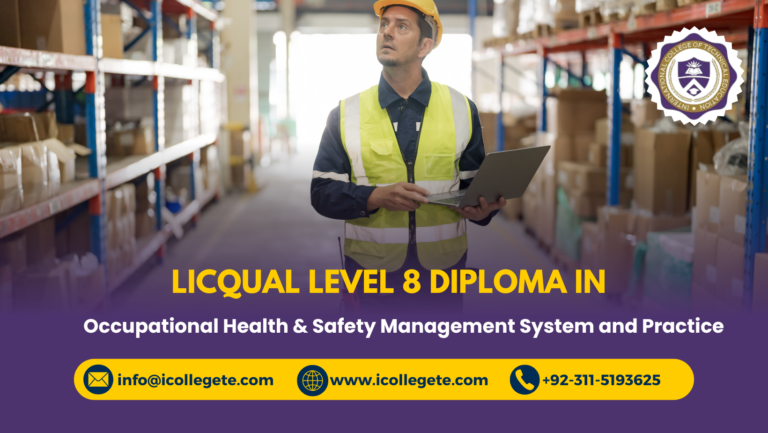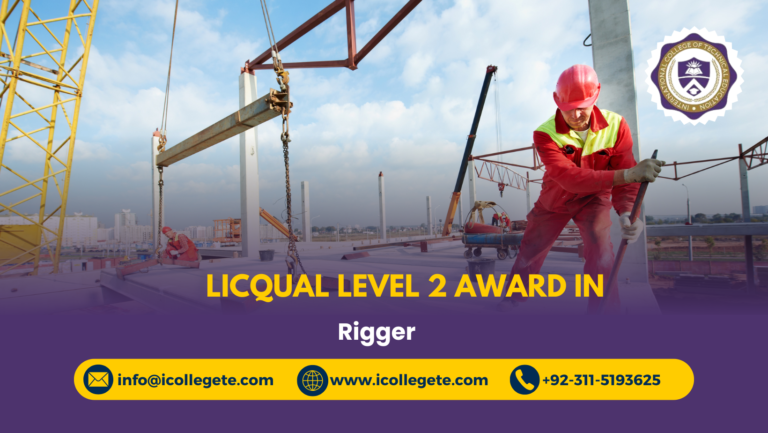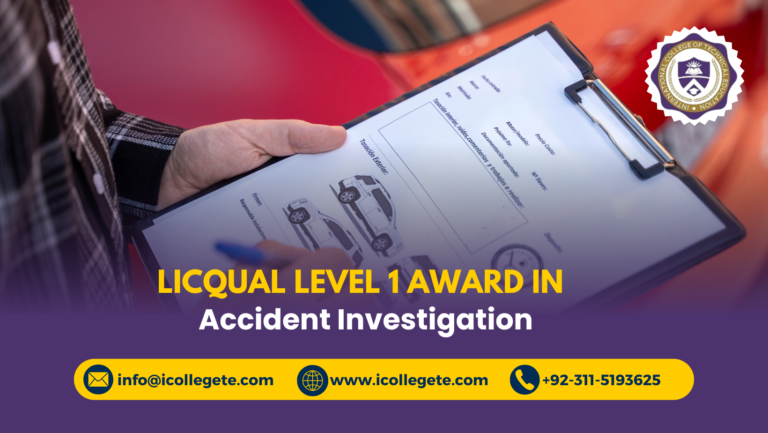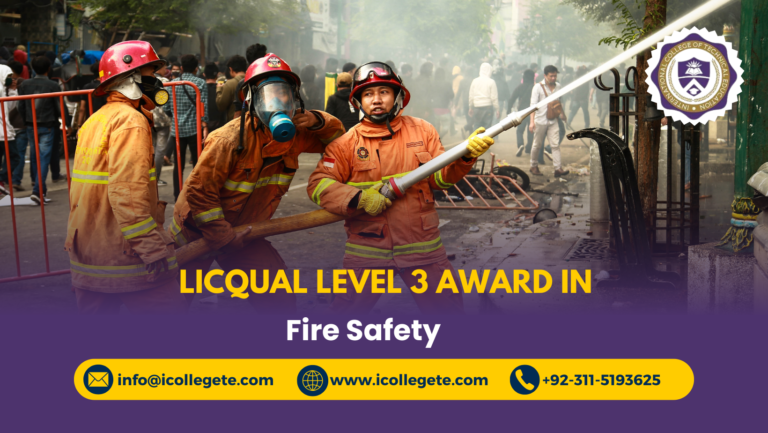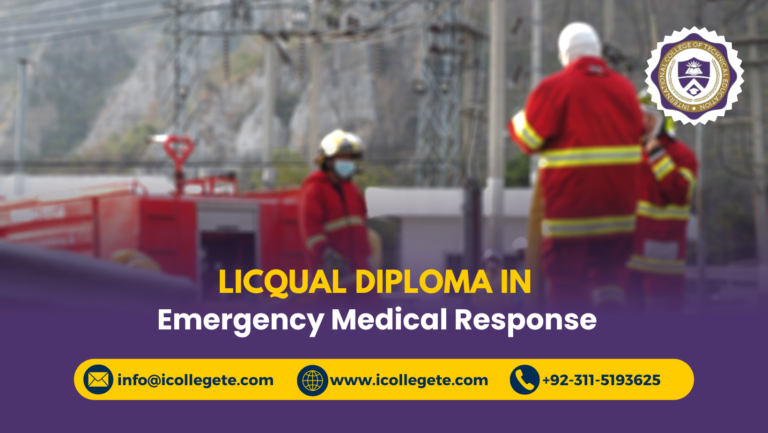Food safety is a cornerstone of the food industry, especially for manufacturers and processors who must ensure that products are safe for consumption. One of the most widely adopted and effective systems for maintaining food safety is the HACCP (Hazard Analysis Critical Control Point) system. The LICQual Certificate in HACCP Food Safety Hazards is an essential qualification for professionals looking to deepen their knowledge of food safety hazards and ensure compliance with international standards. This UK-based certification is globally recognized and 100% assignment-based, offering a practical approach to food safety management.
The LICQual Certificate in HACCP Food Safety Hazards is designed to provide food industry professionals with the skills and knowledge needed to identify, manage, and mitigate food safety hazards effectively. This certification covers all the essential elements of the HACCP system, focusing specifically on food safety hazards such as biological, chemical, and physical risks. The course is tailored for food safety managers, quality assurance professionals, and anyone involved in food manufacturing or production.
As an assignment-based qualification, this course avoids traditional exams in favor of practical assignments that reflect real-world scenarios. This ensures that students not only understand theoretical concepts but also know how to apply them in their everyday work environments. Additionally, the certification is globally accepted, making it a valuable asset for professionals around the world.
Course Overview
The LICQual Certificate in HACCP Food Safety Hazards provides an in-depth exploration of the key hazards that can compromise food safety in production and manufacturing settings. The course is designed to equip participants with the necessary skills to implement and manage a HACCP-based food safety system focused on hazard identification, control, and prevention.
Whether you are looking to build a foundational understanding of food safety hazards or enhance your existing knowledge, this course covers the full spectrum of food safety risks. By learning how to assess, control, and eliminate hazards in the food production process, you will be able to improve food safety practices in your organization and ensure compliance with industry regulations.
Key Features of the Course:
- UK-based Certification: Recognized worldwide across the food industry.
- Assignment-Based Structure: Emphasis on practical, real-world application.
- Globally Accepted: This certification is suitable for professionals across the globe, enhancing employability.
- Expert Support: Access to experienced tutors who provide ongoing support throughout the course.
- Flexible Online Learning: Study at your own pace while maintaining your professional responsibilities.
Course Study Units
The LICQual Certificate in HACCP Food Safety Hazards is divided into several key study units that address all aspects of food safety hazards and the HACCP system. These units include:
- Introduction to Food Safety Hazards and HACCP
- Overview of food safety hazards (biological, chemical, and physical).
- The role of HACCP in controlling food safety hazards.
- Introduction to HACCP principles and how they are applied to food safety.
- Biological Hazards and Contamination Control
- Identifying biological hazards (bacteria, viruses, parasites).
- The impact of biological contamination on food safety.
- Techniques for controlling biological hazards during food production.
- Chemical Hazards and Control Mechanisms
- Understanding chemical hazards (pesticides, food additives, toxins).
- Methods for identifying and controlling chemical contamination.
- Regulatory compliance for chemical safety in food manufacturing.
- Physical Hazards and Risk Management
- Recognizing physical hazards (foreign objects, metal shards, glass).
- Preventive measures and controls to minimize physical contamination risks.
- Ensuring equipment and production practices meet safety standards.
- Critical Control Points (CCPs) in Hazard Management
- Identifying and managing critical control points (CCPs) in the production process.
- Establishing procedures to monitor and control CCPs effectively.
- Corrective actions and preventative measures for non-compliance.
- HACCP Documentation, Record-Keeping, and Audits
- Best practices for maintaining HACCP documentation.
- The importance of accurate record-keeping in hazard management.
- Conducting audits and reviews to verify HACCP system effectiveness.
Learning Outcomes
Upon successful completion of the LICQual Certificate in HACCP Food Safety Hazards, learners will:
- Identify food safety hazards (biological, chemical, and physical) in food production environments.
- Implement HACCP principles to manage and control food safety hazards effectively.
- Apply critical control points (CCPs) to monitor and mitigate risks at crucial stages of food production.
- Develop and implement preventive measures to reduce the risk of contamination.
- Maintain accurate HACCP records and ensure compliance with food safety regulations.
- Perform audits and evaluations to verify the effectiveness of HACCP systems in preventing food safety hazards.
Course Benefits
The LICQual Certificate in HACCP Food Safety Hazards offers several benefits for food industry professionals, including:
- Global Recognition: This certification is widely recognized across the food industry, enhancing your professional credentials and making you more competitive in the job market.
- Practical Knowledge: The assignment-based structure of the course ensures that you gain hands-on experience in applying HACCP principles to real-world scenarios, improving your ability to manage food safety hazards in your workplace.
- Career Advancement: With food safety becoming an increasingly important issue in food production, this certification opens up career opportunities in quality assurance, food safety management, and regulatory compliance.
- Improved Food Safety Practices: By completing the course, you will be equipped with the knowledge to improve food safety practices in your organization, reducing the risk of contamination and enhancing consumer trust.
- Compliance with International Standards: The course ensures that you are up-to-date with global food safety regulations, helping your organization meet international food safety standards and avoid costly penalties.
- Flexible Learning: With a fully online, self-paced format, the course is designed to fit into your busy schedule, making it accessible to professionals at all levels of the food industry.
Who Can Enroll in This Course?
The LICQual Certificate in HACCP Food Safety Hazards is ideal for professionals who work in the food production, manufacturing, and safety sectors. Suitable candidates for enrollment include:
- Food Processors and Manufacturers: Professionals working in food production who want to ensure food safety and compliance with HACCP principles.
- Food Safety Managers: Individuals responsible for implementing and overseeing food safety measures within their organization.
- Quality Assurance Professionals: Those working in quality control or assurance who need to better understand food safety hazards and how to manage them.
- Food Safety Auditors: Individuals interested in auditing food safety systems for compliance with HACCP standards.
- Food Industry Consultants: Consultants who advise food businesses on food safety practices and compliance.
- Aspiring Food Safety Professionals: Those looking to enter the food safety field and build a career in managing food safety hazards.
Future Progression for This Course
After completing the LICQual Certificate in HACCP Food Safety Hazards, there are several pathways for career progression:
- Advanced HACCP Certifications: Graduates can progress to higher-level HACCP certifications (e.g., Level 3 or Level 4) to expand their knowledge and skills in food safety management.
- Food Safety Management Systems (FSMS): This course serves as a foundation for pursuing certifications in other international food safety management systems such as ISO 22000 or BRCGS, which are valuable for career growth in food manufacturing.
- Food Safety Auditing and Consultancy: With a comprehensive understanding of food safety hazards, you can move into roles as a food safety auditor or consultant, advising businesses on how to mitigate risks and implement HACCP systems.
- Leadership Roles in Food Safety: Graduates can move into senior management roles in food safety, quality assurance, and compliance, overseeing food safety programs across large organizations.
- Ongoing Professional Development: Food safety regulations and practices continue to evolve, and this qualification can be a stepping stone to further education and certifications in food safety, risk management, and quality assurance.
The LICQual Certificate in HACCP Food Safety Hazards is an essential qualification for professionals in the food industry who want to enhance their expertise in food safety management. With its global recognition, assignment-based approach, and focus on real-world application, this certification provides the skills needed to manage and control food safety hazards effectively. Whether you’re looking to advance your career or ensure compliance with international standards, this course will equip you with the knowledge and tools to succeed.
Enroll today to gain a globally recognized certification and take the next step in your food safety career!

